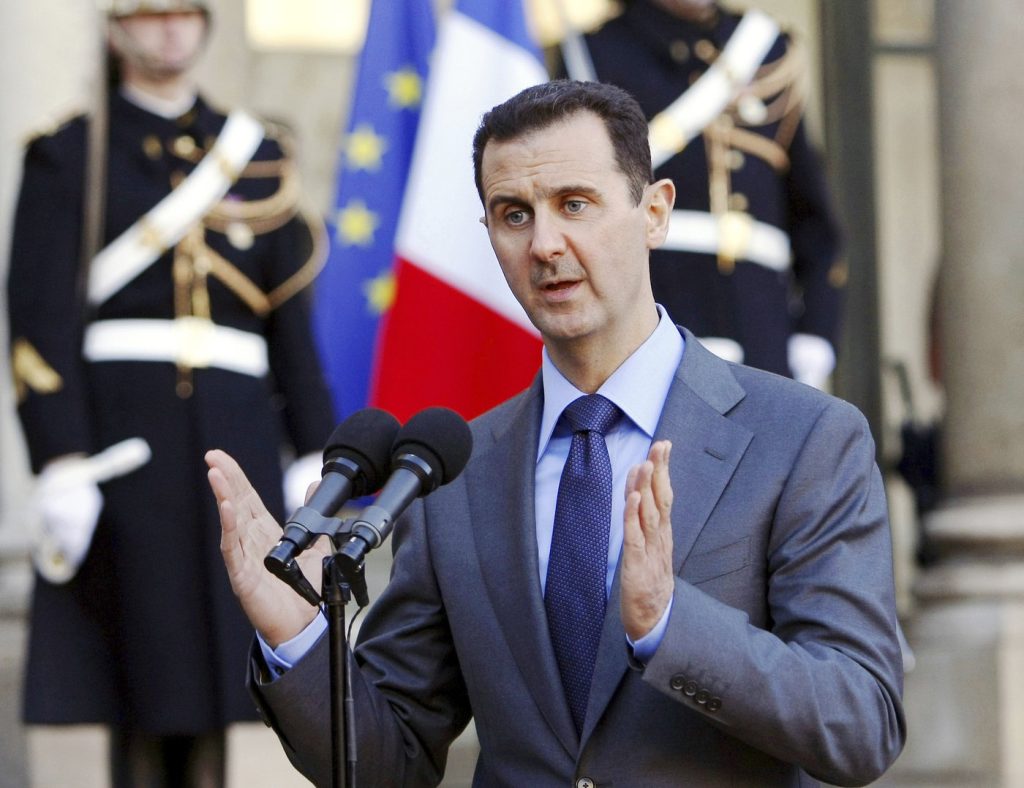BRUSSELS (AP) — France's highest court, the Cour de Cassation, is set to make a pivotal ruling on whether to strip Bashar Assad, the former Syrian president currently in exile in Russia, of his head of state immunity. This decision comes in light of mounting evidence collected by Syrian activists and European prosecutors that accuses Assad of severe brutality.
If the court decides to lift Assad's immunity, this could lead to his trial in absentia for the use of chemical weapons during the notorious attacks in Ghouta in 2013 and Douma in 2018. This ruling could set a significant precedent, enabling the prosecution of other government leaders implicated in human rights atrocities, according to statements from human rights activists and legal experts.
Mazen Darwish, president of the Syrian Center for Media, hailed the potential ruling as "a huge victory for the victims." He emphasized that it would not only benefit Syrians but could also empower victims of atrocities worldwide. The case may allow for legal actions against regime members and could pave the way for prosecuting individuals like Adib Mayaleh, the former governor of the Syrian Central Bank, who has claimed immunity under international law.
Syria's leadership has been under the Assad dynasty for over five decades, starting with Hafez Assad and followed by his son Bashar. The ongoing Syrian Civil War, sparked by widespread protests during the Arab Spring in 2011, has claimed more than half a million lives, according to the Syrian Observatory of Human Rights. The conflict has also caused millions of Syrians to seek refuge in neighboring countries such as Lebanon, Jordan, and Turkey, as well as Europe.
The potential ruling against Assad could create a "significant precedent," according to Mariana Pena, a human rights lawyer from the Open Society Justice Initiative, which is instrumental in the court case. The ruling might empower other national courts to pursue cases undermining the traditional protective immunities bestowed upon heads of state.
Internationally, the move could strengthen the legal frameworks for prosecuting not just former leaders like Assad but also current rulers accused of perpetrating war crimes. The International Criminal Court has previously issued arrest warrants for world leaders, including Vladimir Putin related to Ukraine and Benjamin Netanyahu concerning Gaza.
Assad has consistently denied responsibility for the Ghouta chemical attack, despite evidence suggesting otherwise, and has survived more than a decade of conflict, aided by military support from Russia and Iranian-backed groups. After a surprise rebel offensive in late 2024, Assad fled to Russia. Although activists will pursue extradition through Interpol and Russian authorities, prospects for Assad's arrest remain slim. Nonetheless, a French arrest warrant could facilitate a trial in absentia should he travel outside Russia.
Should Assad be tried, it would provide an opportunity to reveal extensive classified evidence accumulated during investigations, including testimonies and documentation amassed by Syrians risking their lives to gather evidence of war crimes. Darwish noted that significant efforts were made following incidents like the chlorine gas attack in Douma, where activists collected vital evidence linking the regime's actions directly to Assad.
The traditional view of head of state immunity, which has deterred legal action against sitting leaders, may face challenge. Legal experts like Jeanne Sulzer argue that this immunity is "almost a taboo" in international law, created to facilitate dialogue among world leaders. However, growing cases against brutal regimes, such as those led by Augusto Pinochet and Slobodan Milošević, have led to a reevaluation of these legal protections.
As the Syrian state grapples with the ramifications of the Assad dynasty, including ongoing poverty and violence, interim authorities have expressed intentions to collaborate with the United Nations to investigate war crimes linked to the conflict. Darwish continues to pursue multiple cases against Assad and other regime officials now in regions like Russia and Europe, highlighting a consistent approach to seeking justice for war crimes regardless of the individuals involved.











